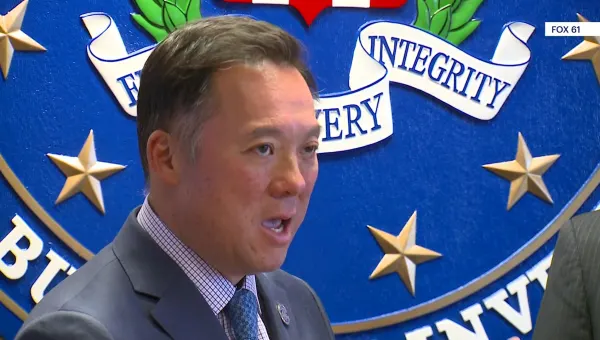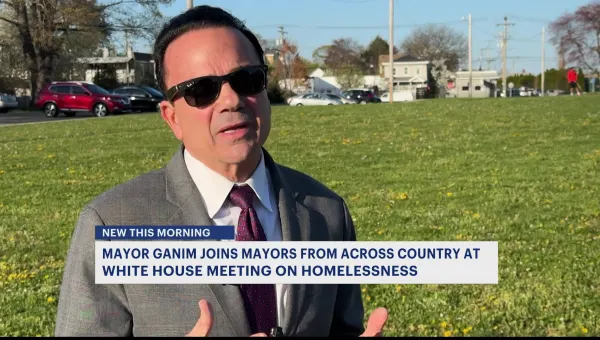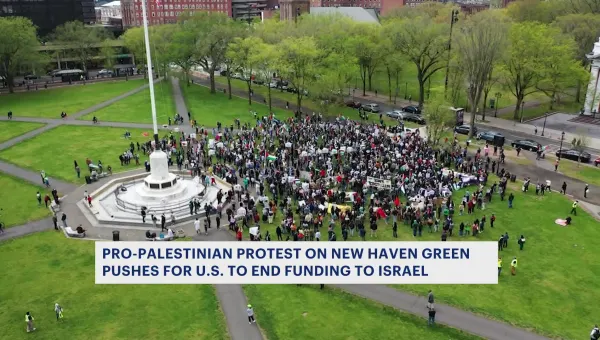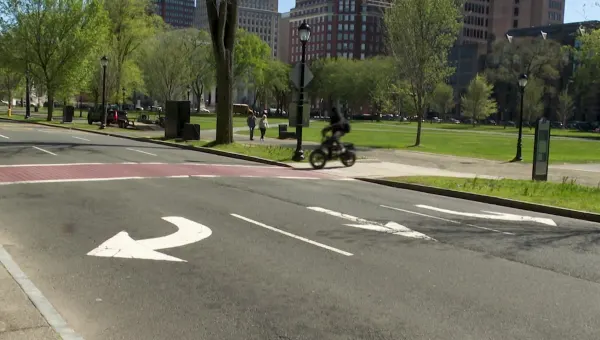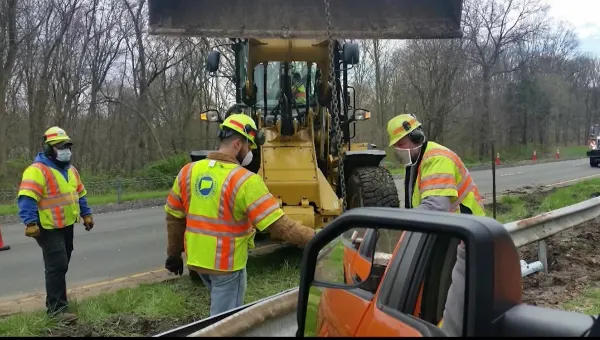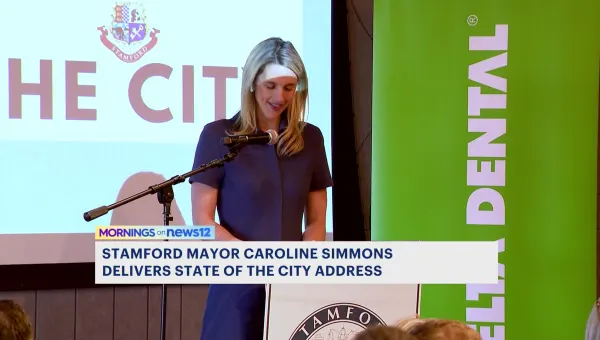Renters push for ban on 'no cause' evictions, but CT lawmakers are wary
Renters say property owners are forcing them out of their homes to gentrify neighborhoods.
Share:
More Stories
0:59
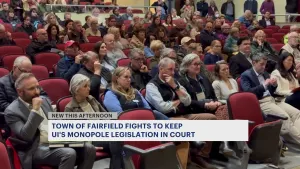
Fairfield officials address residents about UI monopoles
2h ago1:42
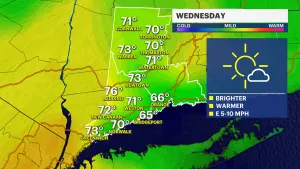
Sunshine, warmer weather returns to Connecticut
3h ago1:55

Volunteers prep for Minks to Sinks sale to benefit Family and Children's Agency
3h ago1:54
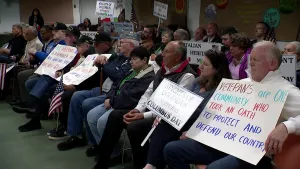
Stamford’s BOE reinstates Columbus Day, Veterans Day in school holiday calendar
7h ago0:22

Hartford Archbishop Leonard Paul Blair retires after 10 years
7h ago0:28

Authorities: 4 dogs left alone in car dead after fire in Milford
7h ago0:59

Fairfield officials address residents about UI monopoles
2h ago1:42

Sunshine, warmer weather returns to Connecticut
3h ago1:55

Volunteers prep for Minks to Sinks sale to benefit Family and Children's Agency
3h ago1:54

Stamford’s BOE reinstates Columbus Day, Veterans Day in school holiday calendar
7h ago0:22

Hartford Archbishop Leonard Paul Blair retires after 10 years
7h ago0:28

Authorities: 4 dogs left alone in car dead after fire in Milford
7h agoRenters packed into the state Capitol on Thursday, pushing legislation that would guarantee lease renewals in most cases.
But landlords are fighting back – and lawmakers are listening.
TENANTS TURNED OUT
During a rally at the Capitol, tenants’ rights groups urged lawmakers to ban “no cause evictions,” when a landlord declines to renew a lease when it runs out.
Renters accused property owners of forcing them out to gentrify whole neighborhoods – and even retaliating against residents who complain about poor conditions.
“I never – not once – missed one payment of rent,” said Leslie Caraballo, of Bridgeport. “They served me with an eviction notice to vacate from the property within seven to ten business days. Not due to nonpayment, but simply because they were reconstructing the apartments.”
In 2023, more than 2,200 tenants were forced to leave at the end of their lease, according to the Connecticut Fair Housing Center. That made up about 11% of all evictions across the state.
“NO CAUSE EVICTION” BAN?
Right now, only seniors and people with disabilities are guaranteed a lease renewal. But a bill would extend that protection to all residents. Landlords could only evict someone for unpaid rent, keeping the unit unclean, lease violations or to take the unit off the market.
As with the current law, rental properties with fewer than five units would be exempt.
LANDLORDS’ VIEW
Property owners claim the bill takes away their basic rights. And landlords like state Rep. Joe Polletta (R-Watertown) said it could actually backfire on tenants.
“It’s going to make a landlord think twice about who to rent to, whether or not to rent the unit or leave it vacant,” he told reporters. “And it could actually result in less housing.”
Less housing means higher rents – something that even has Democrats wary.
“It’s been tough to be a landlord,” said state Rep. Jason Rojas (D-East Hartford), the Connecticut House Majority Leader. “I think you’re just beginning to see legislators who are listening to that side of the debate. Not that we’re indifferent to individuals who are being evicted.”
During a public hearing in February, property managers said that “no cause” evictions are often the only way to remove a problem tenant, because going to court is costly for both sides.
“’Cause’ evictions are difficult to prove. I can’t bring smoke into a courtroom; I can't bring noise into a courtroom,” said Lauren Tagliatela, with Franklin Communities. “We had a resident who repeatedly defecated in a common area of the building. They received several warnings and fines, but refused to stop this behavior. We did not renew their lease.”
OTHER PROTECTIONS
Last year, lawmakers abandoned a 4% cap on rent increases. But this year, they appear likely to require landlords to give 30 days’ notice.
“Obviously, you’d probably be negotiating the lease, and you’d probably know in advance,” said House Speaker State Matt Ritter (D-Hartford) “But theoretically, you could show up the day before and say, ‘Your rent’s going up 25, 35%.’”
Other bills would ban mid-lease rent increases, make housing vouchers more flexible and prevent landlords from discriminating against prospective tenants with felony records.
But tenants groups said, it’s not enough.
"Call our bill for a vote,” said Hannah Srajer, president of the Connecticut Tenants Union. “How many more workers, families, and entire towns will be displaced in the next three weeks alone?”
There is very little time to get more lawmakers on board. The 2024 General Assembly session ends on May 8, and hundreds of bills are still awaiting action.
